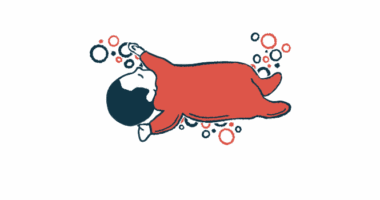The Heart of the Matter: Grappling With the Dangers of Dehydration

I know what I’m about to say will make some of you roll your eyes, but it’s so important.
Drink water every day!
I’m reminding you because a scary dehydration event recently reminded me.
Last Wednesday, my dog woke me at 5:30 in the morning. Standing next to my bed, I remember looking down at my legs, waiting for them to move. Not that I couldn’t physically move them, but more like my mind couldn’t remember how to get my legs going.
I dismissed it as still being half-asleep and concentrated on making my way to the bathroom. As I did, my breathing became labored, and I felt disoriented. Concerned, I turned into my son Cullen’s room, sat on his floor, and struggled to form the words to explain what was happening.
Cullen, 22, was diagnosed with pulmonary hypertension (PH) in 2008 and received a heart and double-lung transplant in 2014. He’s had more than his fair share of emergencies, and he handled mine with the calm and professionalism that years of experience have taught him.
I thought I was having a nasty reaction to a new migraine medication I’d taken for the first time before going to bed. Cullen has been on the same treatment for years and felt skeptical that it was the culprit.
He gently placed his hand on my shoulder and asked, “Mom, how much water did you drink yesterday?” Temperatures in our area had been in the high 90s, I was busy doing things in and around the house, and I only drank about half of a 16-ounce bottle. Cullen suspected I was severely dehydrated.
Thinking fresh air would help, I struggled not to pass out as I went downstairs and vaguely remember stepping out onto the porch. I collapsed into a chair, and that’s when things got scary. My heart felt like it was beating out of my chest. I’ve never felt it so erratic.
Cullen handed me a low-dose aspirin and begged me to drink as much water as I could. It took a while for my heart to calm down, but by then, I was nauseous and sweating. The center of my chest felt heavy, and I had back pain.
I didn’t want 911 called for dehydration, so I continued to down the water. An hour later I felt well enough to return to bed. I was exhausted and fell fast asleep while Cullen and my husband, Brian, continued to check on me.
My doctor agreed that dehydration was the probable cause of the event.
It’s embarrassing to admit that this was not the first time dehydration almost took me down. I’ve suffered heatstroke two times in my life, so you’d think I would’ve learned my lesson.
What’s foolish is that I assumed I would survive this episode as I had the others. Heatstroke can be as deadly as a heart attack, and I believe this time a heart attack is what I was close to having due to dehydration. I should have allowed Cullen to call 911.
Patients and caregivers, know the signs of dehydration and how it affects the body.
Dehydration is the organs’ enemy
According to the Heart Foundation:
“Dehydration can negatively affect your organs and bodily functions, including your heart and cardiovascular system. When you are dehydrated your blood volume, or the amount of blood circulating through your body, decreases. To compensate, your heart beats faster, increasing your heart rate and your blood pressure. Also, when you are dehydrated, your blood retains more sodium, thickening your blood and making it harder for your blood to circulate through your body. Keeping your body hydrated helps your heart pump blood more easily and allows oxygen to reach your muscles, which helps the muscles work efficiently.”
If you are a PH patient, your doctor might be on your ear about hydration. PH is already overworking your heart, so dehydration makes everything worse.
A common symptom of PH that can wreak havoc on the heart is edema (fluid retention), so it is very important that you discuss a fluid intake plan with your doctor. Finding the perfect balance isn’t easy, especially if you’re on a diuretic, but think of hydration as another pill you must swallow. Sure, you would rather not have to do it, but you need to!
How to tell if you might be dehydrated
The Heart Foundation lists thirst, a dry or sticky mouth, low urine output, dark yellow urine, headache, or muscle cramps as mild signs of dehydration.
But if you experience any of the following, it is recommended that you call a healthcare professional immediately: “not urinating, or very dark yellow or amber-colored urine, dry, shriveled skin, sunken eyes, irritability or confusion, dizziness or lightheadedness, rapid heartbeat and breathing, listlessness or unconsciousness, or delirium.”
Now, go drink a glass of water!
Note: Pulmonary Hypertension News is strictly a news and information website about the disease. It does not provide medical advice, diagnosis, or treatment. This content is not intended to be a substitute for professional medical advice, diagnosis, or treatment. Always seek the advice of your physician or other qualified health provider with any questions you may have regarding a medical condition. Never disregard professional medical advice or delay in seeking it because of something you have read on this website. The opinions expressed in this column are not those of Pulmonary Hypertension News or its parent company, Bionews, and are intended to spark discussion about issues pertaining to pulmonary hypertension.









Leave a comment
Fill in the required fields to post. Your email address will not be published.